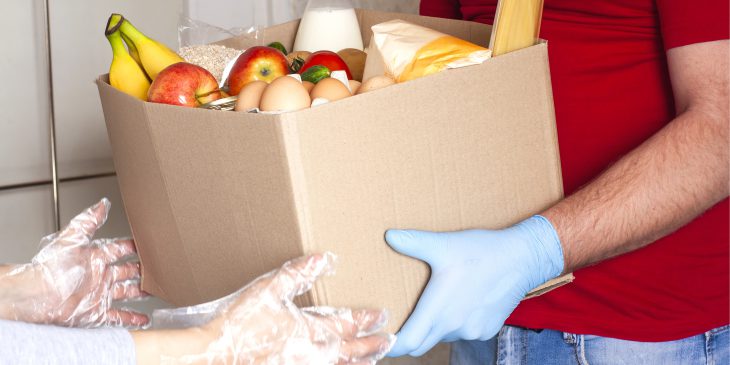In the U.S., 1 in 9 people struggle with hunger, largely as a result of food insecurity— the inability to provide food for every member of a household based on the lack of financial resources. The COVID-19 pandemic has only worsened the problem as thousands of Americans lost their source of income due to lay-offs and business closures.
Prior to the onset of COVID-19, UPMC Children’s Hospital of Pittsburgh was already screening patients and families for food insecurity at the hospital, primary care clinics, UPMC Children’s Family Care Connection Centers and various other specialty and complex care clinics as part of the Food Security Quality Improvement project. Patients can receive direct referrals for both emergent and sustainable food assistance through several community partners: Just Harvest, 412 Food Rescue and the Greater Pittsburgh Community Food Bank.
“We are working to address food insecurity and hunger needs both in the clinical setting and in the community. The Division of Community Health at UPMC Children’s developed a comprehensive model to implement food security screenings and appropriate intervention through clinical settings,” said Anne Marie Kuchera, director of the Division of Community Health at UPMC Children’s.
Between November 2019 and March 2020, a total of 7,146 patient food security screenings were conducted, and of those screened, 135 families were identified as food insecure. 82 of these families received referrals to UPMC Children’s community partner Just Harvest— a nonprofit organization aimed at providing support and resources to reduce hunger in Allegheny County.
When COVID-19 reached Pittsburgh in mid-March, most UPMC Children’s clinical locations shifted to telemedicine visits, but at the few clinics where in-person visits continued, $4,000 worth of grocery gift cards were funded and distributed to families experiencing food insecurity, an effort organized by clinical-community program specialist Abigail Carpenter. Additionally, 250 emergency food boxes, provided by the Greater Pittsburgh Community Food Bank, were given to families via the emergency department at UPMC Children’s Hospital and at Children’s Primary Care Centers.
UPMC Children’s also partnered with Eat’n Park restaurant to distribute 2,720 hot family-style meals to 350 families over four weeks early in the pandemic.
“The Division of Children’s Community Health swiftly shifted operations during the COVID-19 crisis to meet the needs of patients and families, community partners and school partners in innovative ways,” explained Kuchera. “Our goal is to provide the critical tools needed to combat food insecurity in the communities UPMC Children’s serves. We want children to have the nutritious food they need to grow and develop, and we never want families to have to choose between buying food or paying for medicine and health care services.”
Addressing food insecurity for children is a goal of UPMC Children’s Hospital’s commitment to prevention and community-wide healthy living as part of the UPMC Community Health Needs Assessment (CHNA)— an initiative that identifies the most pressing community health concerns and provides free resources and support through charitable UPMC funding. The full CHNA implementation plan can be viewed online.









